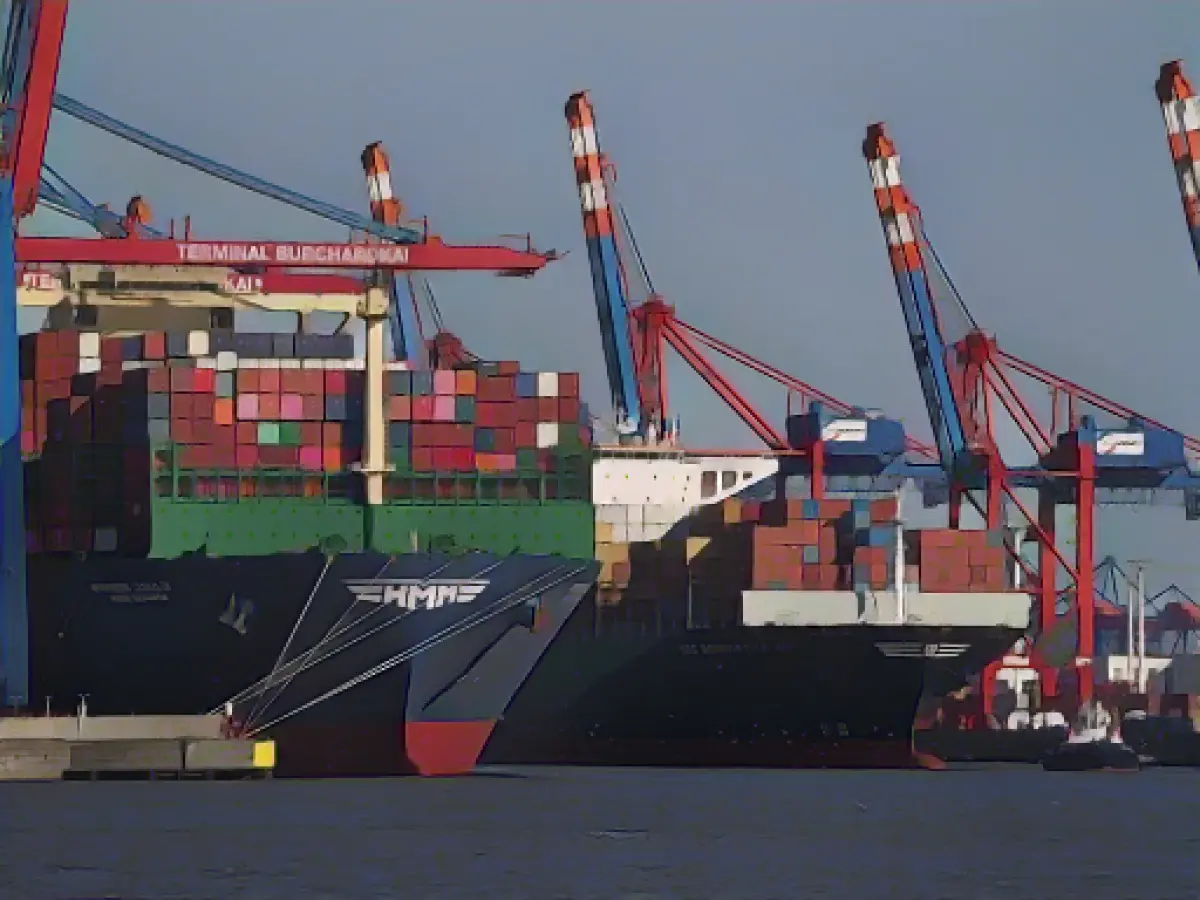Habeck advisor: More EU cooperation against supply bottlenecks
To reduce dependency on critical goods, advisors to Federal Economics Minister Robert Habeck (Greens) are calling for greater coordination at European level. The risks are particularly great for Germany, writes the ministry's scientific advisory board in a report entitled "Guard rails to strengthen security of supply", which was published in Berlin on Tuesday. "The German economy, characterized by a still strong industrial core and a high degree of openness, is particularly affected by uncertainty in international supply chains."
Although the trade statistics do not indicate any great dependence on individual importing countries, the experts write, this could be different for important raw materials. In 2019, before the coronavirus pandemic, uranium ore came from just two supplier countries, including Russia. 19 important substances for the pharmaceutical industry came from no more than three countries, as did highly specialized goods such as telecommunications satellites, refrigerated ships and dredgers. China is much further ahead than the EU or the USA in its efforts to put its supplier relationships on a broader footing.
"A decoupling of Germany would be particularly painful in the area of electronic products such as chips from the most important Asian manufacturing countries (Taiwan, China, Japan and Korea). This would result in a real loss of value added of around 13 billion euros in the short term," the economists write. Similarly high losses would be incurred if imports of IT services from the USA were no longer possible. The current decoupling from Russian energy products such as gas and oil would even cost around 20 billion euros.
Warning against political actionism
However, the scientists warn against political actionism in dealing with such risks. "There is a danger that hectic political measures to curb these fluctuations are counterproductive, because increasing supply typically takes time and therefore often only becomes effective when shortages are already decreasing," they warn. "Ill-considered measures geared towards short-term needs also run the risk of failing to take future shortages into account." This makes it almost impossible to reliably identify strategically important goods and services. The scientists are skeptical about the creation of "lists of critical goods, technologies or sectors" to be supported by the state.
The experts consider EU free trade agreements to be an important instrument. They advise that in future, the focus should be less on opening up new markets for European products and more on the procurement of important goods. They welcome agreements on critical minerals, such as those the EU is planning with the USA and Chile. Criteria such as securing the supply of raw materials should play a greater role in securing foreign investments by German companies, such as those offered by Germany via Hermes guarantees. Better framework conditions for recycling are also important.
Trade policy strongly determined by Brussels
In order to secure the supply of important goods, public sector purchase commitments could also be useful under certain conditions, the scientists write. So-called capacity markets, such as those for electricity in France and the USA, could also help. Here, suppliers commit to future deliveries at fixed prices and receive money in advance.
As the German economy is closely intertwined with other European countries and trade policy is heavily influenced by Brussels, the economists suggest setting up a European office for security of supply. This would monitor potential supply difficulties in international trade relations and make proposals to politicians on how to respond. Its tasks could also include the coordination of joint strategic reserves of important raw materials.
The Scientific Advisory Council advises the Minister for Economic Affairs independently and on a voluntary basis on economic policy issues. Its 41 members meet five times a year, discuss topics of their own choosing and publish their findings in the form of expert reports.
- In light of the potential vulnerabilities in international supply chains, Robert Habeck's advisors propose strengthening EU cooperation to reduce dependency on crucial raw materials, particularly for Germany, given its industrial core and open economy.
- To mitigate supply risks in the context of trade, the scientific advisory board recommends focusing more on securing the procurement of essential goods through EU free trade agreements and criteria like securing raw material supply in foreign investments.
Source: www.dpa.com








